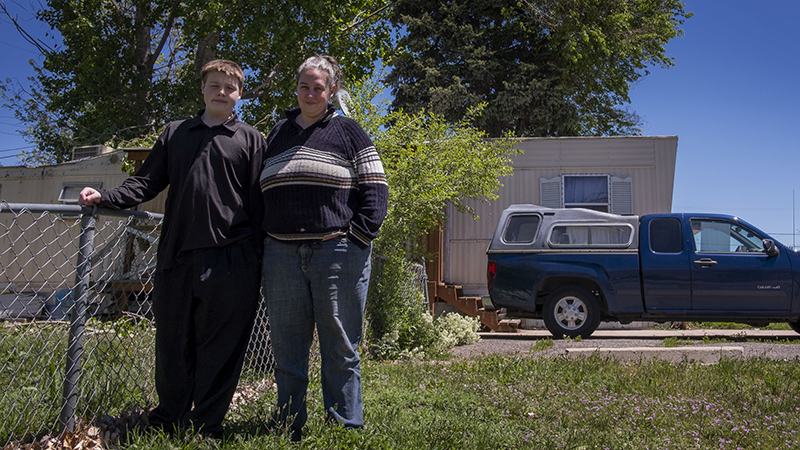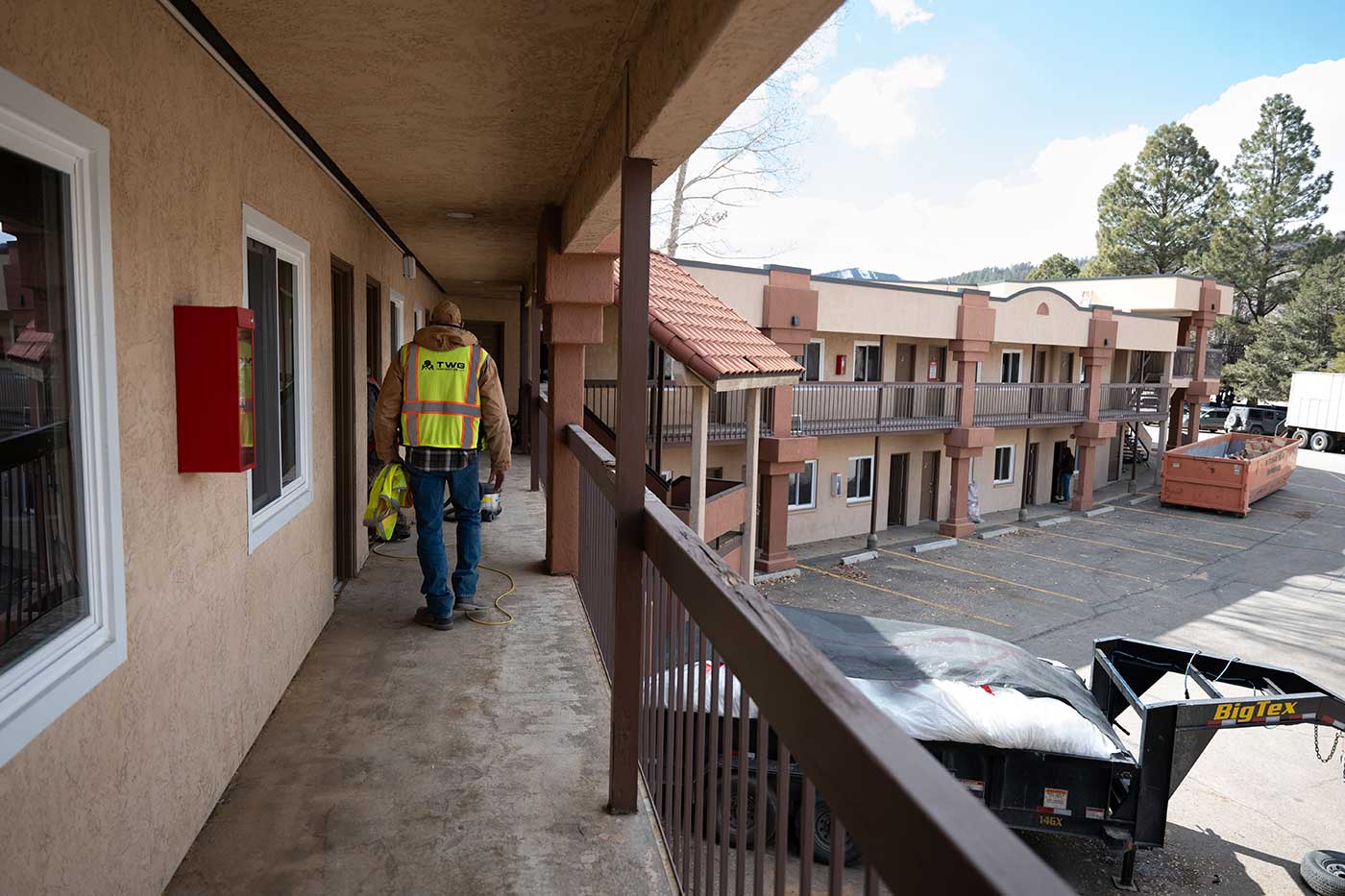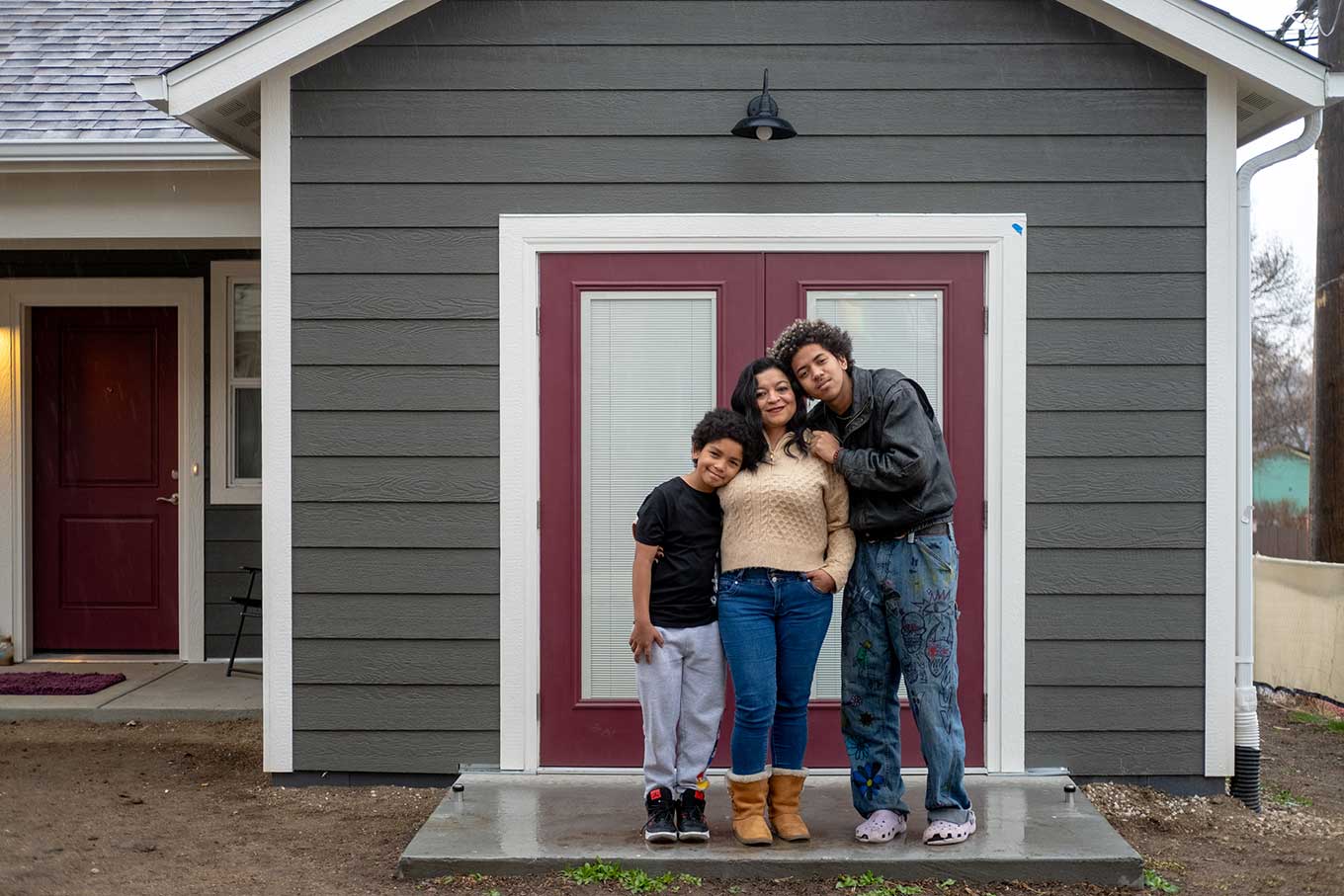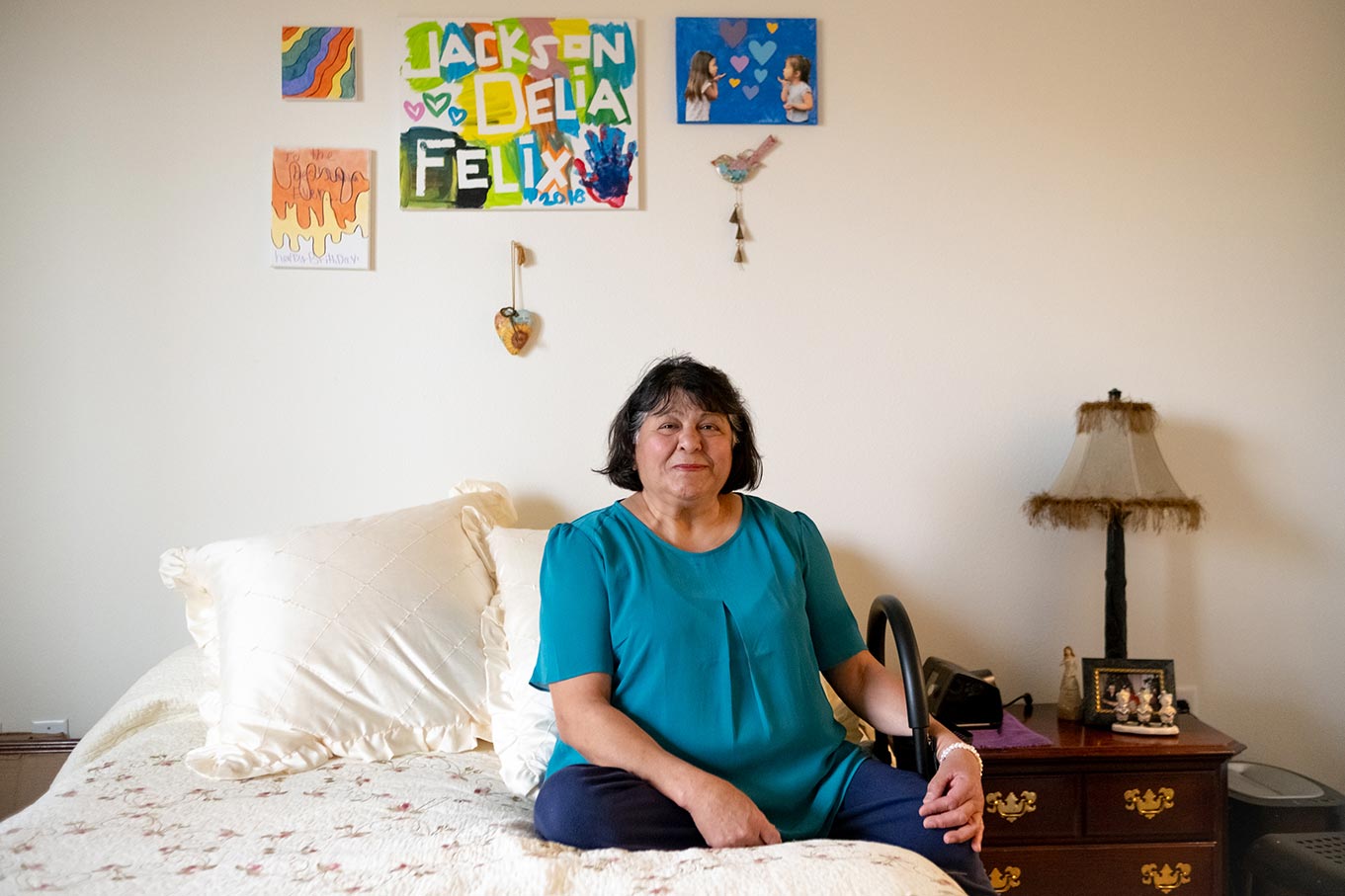By Michael Booth
Rising rent is one thing, and longtime Denver tenant Andrea Fuller has seen her share of that—10 percent annual increases at her unit in a large apartment complex during the latest metro boom years.
But it’s the other things—the fees for services that never get provided, the broken basics like heat or trash collection, the threats of eviction for complaining—that turn the renting life into a laundry list of inequities for Fuller and many others.
When Fuller’s family moved into a new unit in the same apartment complex, after 11 years there overall, they had to pay a new deposit, a “transfer fee” and a paperwork fee. In the new unit, the heat didn’t work, smoke detectors lacked batteries, and the washing machine was broken for seven weeks.
“It’s just appalling,” said Fuller, who pays a substantial portion of her income for rent and didn’t have a reserve for $1,175 in seemingly arbitrary moving costs. “I do feel very strongly there’s a substantial amount of abuse of power.”
Adjusting the balance of power a bit more toward renters is a major goal for advocates of Colorado’s working class in 2019, as affordable and equitable housing has become a first-line target among the social determinants of health. Eviction rates are rising along with metro-area rents, even as the ability to own a home recedes for more and more of the population that can’t afford the median price of $420,000.
“Our wages have been stagnant but our housing [costs] has skyrocketed,” said Crystal Murillo, an Aurora city councilwoman and first-generation high school and college graduate. Murillo’s Ward 1, straddling east Colfax Avenue, is predominantly Hispanic, with one in five born in another country. Its median household income is about $30,000 (compared to $50,000 for Aurora overall).
Murillo wants more rights for renters at the city and state level, including more protections for much-needed mobile home parks that many developers want to obliterate for more profitable tenants.
“It’s a lot harder to help somebody after they’ve been evicted than it is to prevent them from being evicted,” Murillo said. “In Ward 1, we’re dealing with some basic challenges: food versus rent. I can’t believe that, as a developed country, we’re still having this conversation.”
That renters with lower incomes face more financial problems may seem an obvious fact. The “Facing Eviction Alone” study of Denver-area housing legal issues, published by the Colorado Center on Law & Policy (CCLP), a Colorado Trust grantee, found 8,000 eviction complaints filed against Denver residents in 2016, with 37,000 more in other Colorado counties.
Writing in The Journal of the American Medical Association, Boston Medical Center and Princeton University researchers focused on rent-burdened families—those paying more than 30 percent of their income for housing—who “not only have less money to spend on wellness and health care but also regularly face eviction and homelessness, which further threaten their health. According to recent estimates, 2.8 million renting households are at risk of eviction and more than 500,000 people are homeless on any single night” in America, the study said, also observing that “housing problems have been associated with a wide array of health complications, including lead exposure and toxic effects, asthma, and depression.”
The nonfiction bestseller Evicted: Poverty and Profit in the American City, by Princeton sociology professor Matthew Desmond, PhD (who co-authored the previously mentioned study), described social scientists’ use of the term “material hardship,” a measure of scarcity for whether “families experience hunger or sickness because food or medical care is financially out of reach or go without heat, electricity or phone because they can’t afford those things. … The year after eviction, families experience 20 percent higher levels of material hardship than similar families who were not evicted. … They go without food. They endure illness and cold. Evicted families continue to have higher levels of material hardship at least two years after the event.”
There are often stark disparities among race lines in terms of who gets evicted. Desmond’s Evicted describes how in Milwaukee rental housing, “over 1 in 5 black women report having been evicted in their adult life, compared with 1 in 12 Hispanic women and 1 in 15 white women.” And a map of Denver Housing Authority evictions compiled for “Facing Eviction Alone” shows the heaviest concentration of eviction actions closely correlated with the highest percentages of residents of color.
Evictions and other anti-consumer tactics “disproportionately affect people of color due to a long history of redlining in Colorado,” said Jack Regenbogen, a CCLP family economic security attorney and co-author of “Facing Eviction Alone.” (Redlining, as summarized by the reference website ThoughtCo, is “a process by which banks and other institutions refuse to offer mortgages or offer worse rates to customers in certain neighborhoods based on their racial and ethnic composition.”)
Housing advocates and legal aid attorneys who assist tenants say Colorado ranks among the worst states in failing to provide renter protections. They are working in concert on a series of changes they hope will press the balance of rights back toward the renters’ side.
A new state law expands the number of days tenants have between the time an eviction notice is hung on their door and the hearing in court. The previous 3-day period was never enough for renters to find emergency funds and reach an agreement with the landlord on past-due rents and fees, advocates said. The new period extends this to 10 days.
Another bill passed by this year’s legislature makes it easier for tenants to demand safe living conditions and working appliances, and adds mold to the list of uninhabitable conditions. It also addresses a key complaint of tenants who say they are often targeted for eviction and other retaliation after they claim unsafe conditions.
An additional new bill could bring relief to high, unrefunded application fees and landlords taking in applications when they don’t even have apartments to let. Under the new law, the application fee has to reflect actual background check fees and other costs for the landlord, must come with a receipt, and must be refunded if the tenant does not get the apartment.
In the final legislative victory, tenants won an eviction legal defense fund that authorizes $750,000 in General Fund money to be granted to housing legal-aid services like those now embedded in Denver and Adams County courthouses. “Facing Eviction Alone” showed that landlords nearly always have legal representation when they take an eviction or habitability issue to court, while tenants almost never do, losing nearly every time.
Other pro-tenant and pro-affordable housing efforts include trying to bolster the future of area mobile home parks challenged by more lucrative redevelopment. Murillo, in Aurora, has been among a group advocating for compensation to renters of trailer spaces in the Denver Meadows mobile home park in the shadow of the new Veterans Administration Hospital at I-225 and Colfax. Aurora had placed a moratorium on closing such parks, but the moratorium has expired and now the city is offering financial assistance to remaining residents who must move their homes.
The movement is a welcome correction to the injustices magnified by a fast-growing local economy that gives landlords much of the power over tenants competing for scarce living spaces, said Andrea Chiriboga-Flor, co-director of the workers’ rights group 9to5 Colorado.
“Tenants are considered disposable because you can replace them so easily,” said Chiriboga-Flor. “Colorado really does have weak laws when it comes to tenants’ rights, but we haven’t really felt the lack of rights until we’ve been in this squeeze,” referencing the scarcity of mobile home lots.
Apartment owners and trade associations have spoken out against the measures or called for significant changes, saying the real problem for Colorado housing seekers is a lack of affordable stock. They say the new protections for renters will make many units owned by “mom and pop” landlords unprofitable, and they will take them out of the renting pool for sale as owned homes, shrinking the stock further and raising rents.
Market forces will do the most to make housing affordable, said Nancy Burke, vice president of public policy and communications for the Apartment Association of Metro Denver. A flurry of apartment building openings is already having an impact, she said.
“What they don’t understand is that they are a little late on the call, because rents are down in the last two quarters,” Burke said. “So that’s natural economics, if you will.”
Burke said the industry had been working with legislators for the past three years to reach agreement on changes like the application fees, and “we ended up being okay” with this year’s bill. They fiercely opposed a failed bill allowing Colorado communities to set their own rent control levels, saying developers would stop adding new housing units.
Lawmakers and regulators should work to make building new units easier and cheaper, Burke said, by speeding permitting, cutting bureaucracy on affordable housing tax breaks, and ending building rules that Burke said are arcane and expensive.
Making business easier for developers is not the solution on the mind of rent-squeezed residents like Shannon Holloman and her family, who own a trailer and pay to rent space at Denver Meadows. She pays $890 a month for the ground, far higher than the $500 a month she recently paid in Missouri. When they are forced to move at the mobile home park’s closing, by May 31, she may have to pay $1,300 a month in ground rent for another spot in Aurora.
“It’s spread my income like you wouldn’t believe, just to get out of this mess,” Holloman said. 9to5 stepped in to help Denver Meadows residents ask the park owner and Aurora officials for more time. Aurora has allocated up to $300,000 to help each of the remaining 20 families move, Chiriboga-Flor said.
“It’s heartbreaking… Aurora has said in their own plans that they have a deficit of 14,000 affordable units for families making less than $25,000,” said Chiriboga-Flor, who has served on housing task forces for the city. (This estimate is also mostly in line with a comprehensive survey of housing challenges in Arapahoe County overall.) “So this is another addition to the housing deficit. We’d like Aurora to work on a new mobile home park.” 9to5 is trying to link a national nonprofit developer with city-owned land to create a new mobile home cooperative. The Denver Meadows owner did not return messages seeking comment.
In Denver, renters like Scott D’Angelo hope the new laws favoring tenants make the process more fair for people fighting disadvantages beyond low incomes. D’Angelo, who was homeless for years, lives with chronic obstructive pulmonary disease and other ailments in a Volunteers of America-subsidized apartment downtown.
When looking for an apartment he could afford, D’Angelo used to put in dozens of applications and fees, only to see managers change and say they had no records.
“They want your money for the application but they never even put you on their list,” D’Angelo said. “You pay $35 here, $40 there, $50 here, and you never hear anything.”
Exercising rights under the new laws will mean tenants leaning harder on public legal services like Denver Eviction Legal Defense, the pilot program run by Colorado Legal Services and made possible by Denver City Council members who pooled spare office funds. A similar program has since sprung up in Adams County, and with the new state funds will spread to more counties.
There is much work to do. A study of the hundreds of clients served in the first few months of Denver’s legal aid program shows disturbing racial disparities, and reveals how often eviction cases impact vulnerable children.
In the eight months of 2018 the legal aid office operated, it served 398 clients from across the city. Thirty-four percent of the clients served were African American—triple the proportion of African Americans overall in Denver. Thirty-five percent of clients had disabilities, and the nearly 400 cases encompassed 344 children.
Moreover, the review noted, “Physical addresses of defendants suggest that evictions disproportionately affect neighborhoods with more people of color and areas of rapid growth and gentrification.”
On a typical weekday morning in April, the eviction process at Denver’s county court reflects Colorado Legal Services staff attorney Jana Happel’s observation about the high levels of stress for clients facing loss of their home. Tenants who’d had a notice posted on their doors came to a podium in a basement courtroom to talk to the judge, who carefully explained how they could avoid a crippling monetary judgment on their record that would make it difficult to rent anywhere else.
Judges encourage tenants to work out a payment with their landlord so they can vacate the eviction, but keeping the renter in place rarely happens, Happel said. Most often, tenants agree to leave the unit if the landlord gives up all claims.
“Even if they have to move, if they finish up with a new home and no judgment against them, that’s the best we can do in many cases,” Happel said.
“Just look in folks’ faces. There are so many people who are scared and overwhelmed.”





